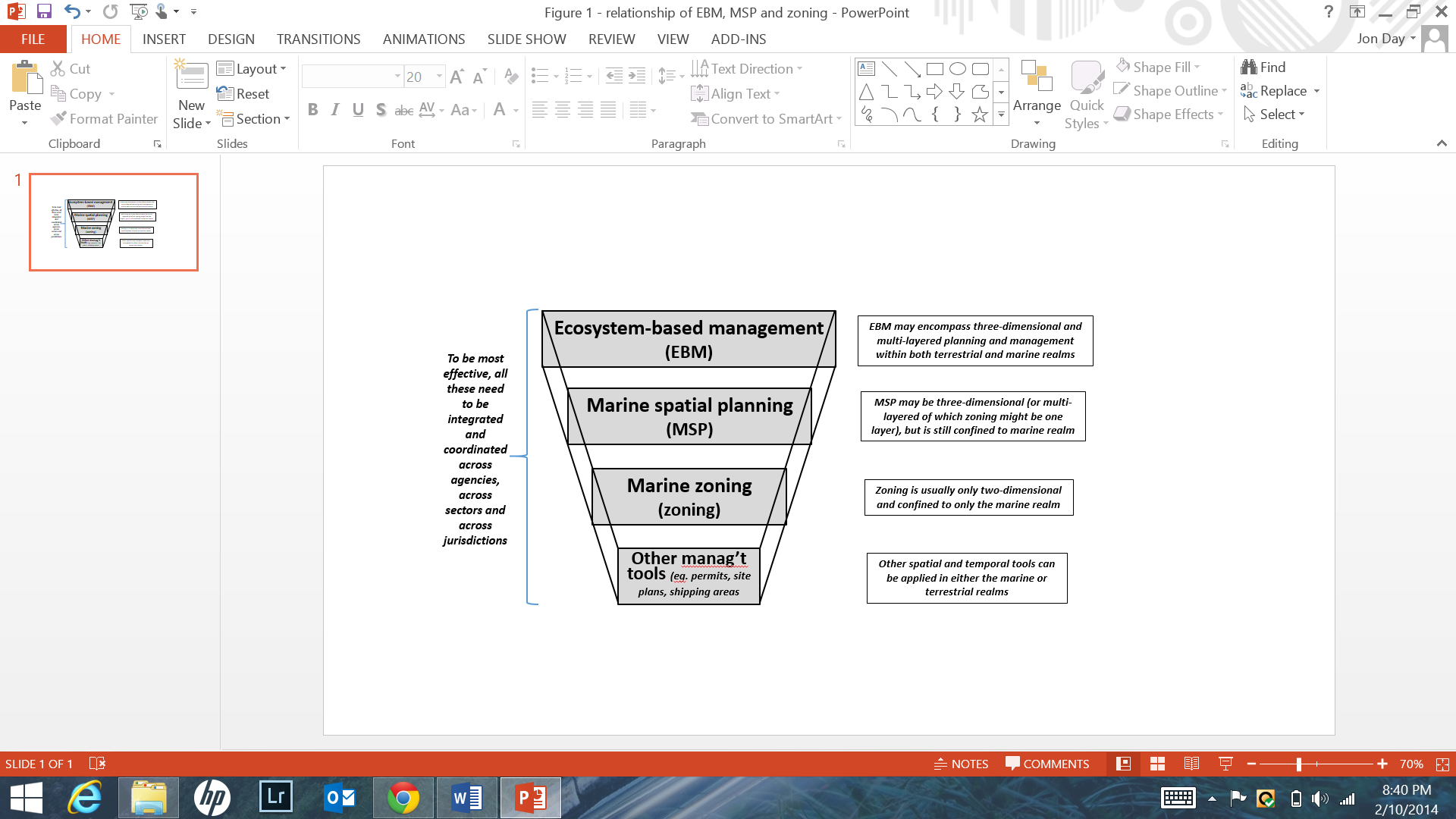Ecosystem based management: thinking outside the (marine) box
Interrelationship of zoning, MSP and ecosystem-based management as it occurs in the GBR Marine Park (from Day, 2015)
Many issues facing MPAs cannot be effectively addressed by managing the marine realm alone; e.g:
• water quality – most water quality issues arise on land
• coastal developments, e.g. ports – most are outside the jurisdictional control of an MPA
• increasing population growth and recreation – marine management does little to curtail growth or reduce some consequential impacts
• climate change – management may build resilience but climate change is a global issue
The GBR Marine Park is confined to waters seaward of low water mark so does not include tidal lands/tidal waters; key coastal areas e.g. ports and ‘internal waters’ of Queensland are also excluded (another Blue Solution outlines complementary zoning, irrespective of which jurisdiction applies).
An integrated management approach with other agencies extends the management influence outside the Marine Park so that the islands, tidal areas and many activities in the catchments are effectively addressed. For example, the mapping of coastal ecosystems, the identification of key areas within catchments, and working with farmers to minimise their impacts on water quality, are specifically aimed at addressing the land-sea interface and the adjoining coastal lands and waters.
• The GBR legislation [s. 66 (2)(e)] also has provisions to take a broad ecosystem-approach, allowing regulatory controls on specific activities outside the jurisdictional area (e.g. specific Regulations controlling aquaculture up to 5 km inland to address the potential adverse impact of aquaculture discharges on GBR water quality).
• Cross-jurisdictional agreements (see Resources) have also assisted the achievement of this broader ecosystem approach.
• Management of the marine realm alone is unlikely to result in effective marine conservation; additional efforts must also be made in parallel e.g. influencing others to better manage the adjoining coastal waters and catchments.
• A comprehensive ecosystem-based management (EBM) approach encourages ‘thinking outside the box’ (i.e. think differently, and from a new perspective) and can encompass multi-layered management and planning within the terrestrial and the marine realms, which are both relevant for effective marine conservation.
• Such management approaches (e.g. addressing water quality) are best undertaken in partnerships with other agencies, local governments and industries in these adjoining areas.
• Many of the current initiatives undertaken by GBRMPA and other agencies are specifically aimed at addressing the land-sea interface and the adjoining coastal lands and waters.

